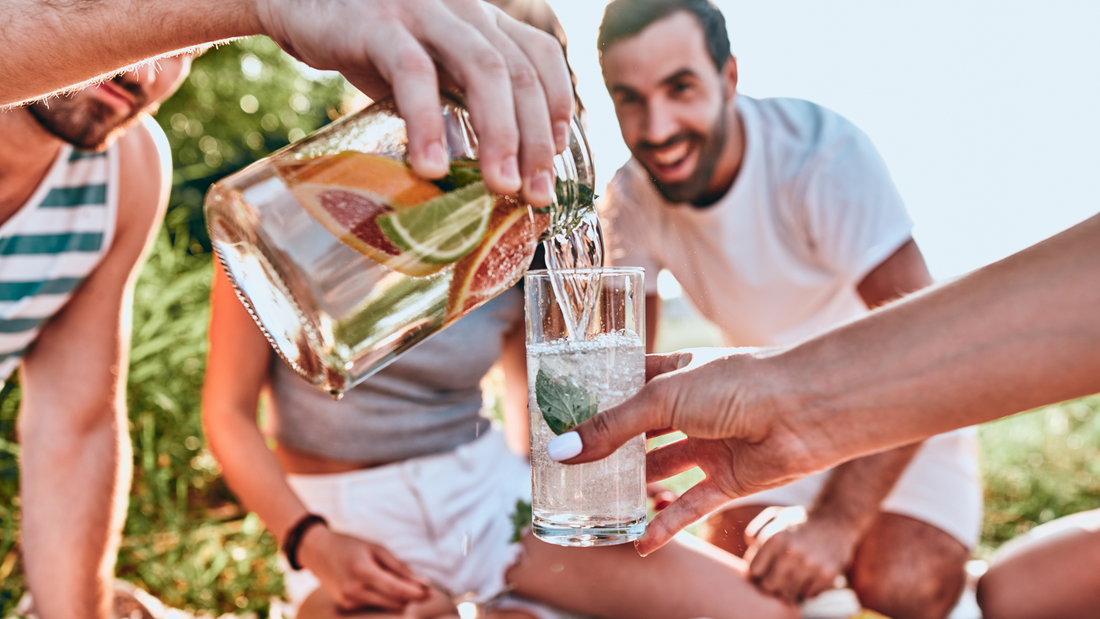Water is good for you. We all know that. But what happens to your body when you are short of fluids? And how can you prevent this? In this blog, we tell you all about it.
Thirst
Your brain, lungs, skin, liver and kidneys are largely made of water. Your body continuously loses fluids through its normal bodily functions. It is therefore important to replenish this loss of fluids. If you wait until you are thirsty, you are already too late. By then, your body has already developed a fluid deficit of 0.8% to 2% of your body weight! You get headaches, you find it harder to concentrate and your short-term memory is impaired.
Other body functions
But the rest of your body also suffers from a lack of fluids. Less waste is removed by the kidneys and your liver burns less fat. The skin, our largest organ, also becomes dehydrated and dries out. The lungs take in less oxygen and expel less carbon dioxide. The capillaries in the lungs constrict and breathing becomes difficult. Even your bones benefit from water: lack of fluids causes friction between joints. This leads to damage and pain. And did you know that poor fluid balance also increases the risk of cardiovascular disease?
Nutrition
A lack of fluids occurs in various ways. You lose fluids through defecation, but also through sweating and breathing. It is therefore essential to replenish these fluids throughout the day. We need 2.5 litres of fluids every day to maintain our fluid balance. Certain foods help in this regard. Examples include cucumber, watermelon, radishes, celery, tomatoes, peppers and cauliflower. Besides water, these foods contain many other nutrients that are good for your body, such as vitamins and fibre.
Water
But these foods alone are not enough. In order to reach the 2.5 litres of fluid it is important to drink enough water. This is easier said than done. Many people simply forget. In such a case, it may help to always have a bottle of water with you, or to set alarm clocks that serve as reminders. Or put a jug of water on the dining table or on your desk as a visual reminder.
Make it tasty!
Many people do not necessarily like water. The water that comes out of our taps often has an unpleasant, chalky taste. With the AquaTru, this is history. The device filters the waste products from your tap water. What remains is clean, soft and fresh water. You can choose to add AquaTru Perfect Minerals to your water. This is how you make naturally alkaline water. Moreover, you can add all kinds of goodies, such as cucumber, lemon, raspberry and watermelon. The filtered water also enhances the taste. This makes it a piece of cake to drink enough water!




